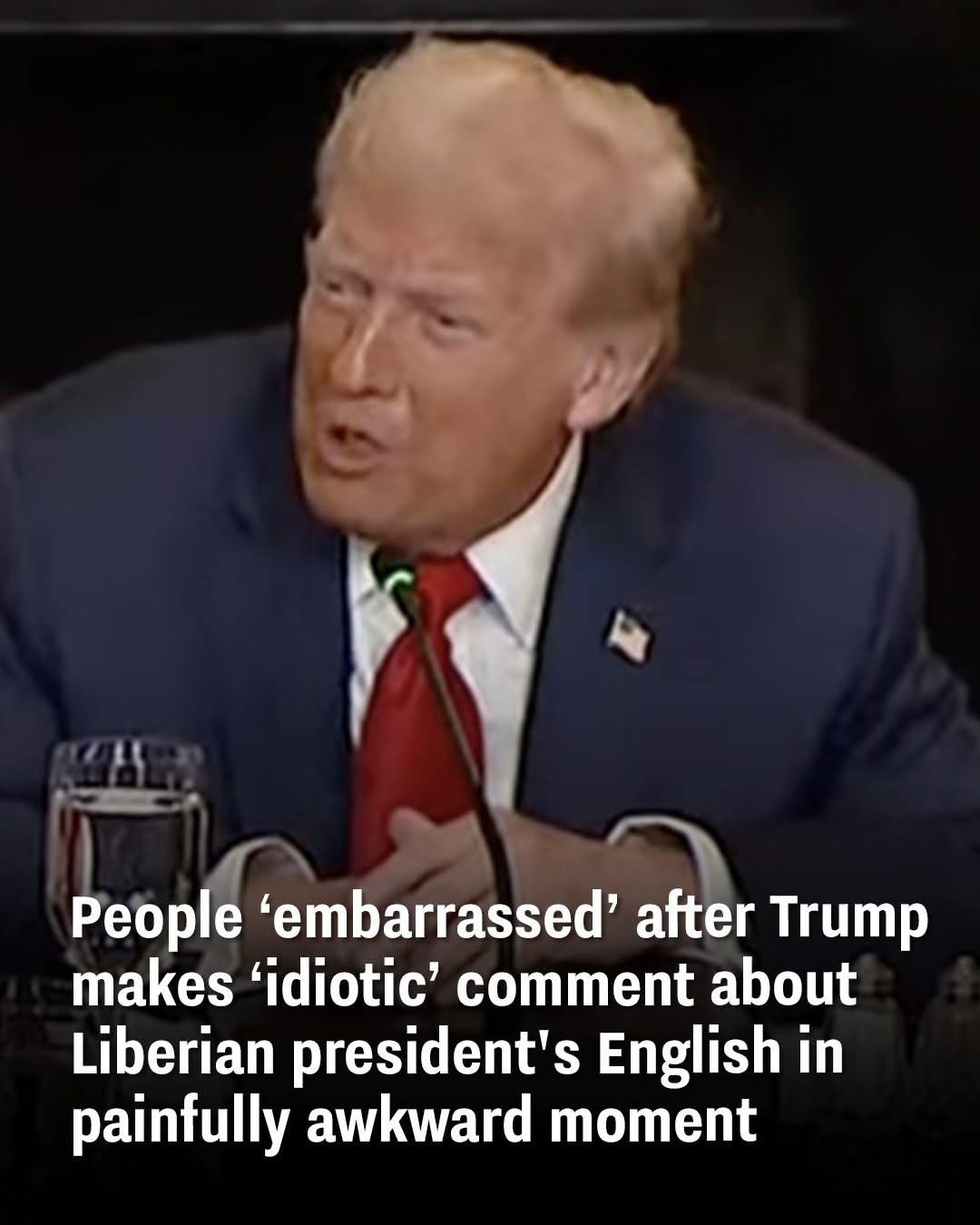Trump Mocked for Awkward Comment on Liberian President’s English: “This Is So Embarrassing”
Former President Donald Trump is once again facing backlash online following a painfully awkward exchange with Liberian President Joseph Boakai during a recent White House event with African leaders.
During a luncheon held in the State Dining Room, Trump complimented Boakai on his English skills—seemingly unaware that English is the official language of Liberia.
“Thank you, and such good English,” Trump said after Boakai delivered his opening remarks.
“Where did you learn to speak so beautifully? Were you educated? Where?”
President Boakai responded calmly: “Yes, sir,” and confirmed that he had learned English in his home country.
Trump continued, apparently unaware of Liberia’s linguistic history:
“That’s very interesting. It’s beautiful language. I have people at this table who can’t speak nearly as well.”
Online Reaction: “Embarrassing and Ignorant”
The interaction quickly went viral, sparking widespread criticism and mockery on social media.
“This is so embarrassing,” one user posted on X (formerly Twitter).
“Country run by idiots,” wrote another.
A third added, “Does Trump ever not embarrass our country on the global stage?”
Commentators and political analysts also pointed out the irony of Trump’s question, given that Liberia was founded by freed African Americans in the 1800s, and English has been its official language since independence in 1847.
Liberia’s Historical Ties to the U.S.
Liberia has a unique historical connection to the United States. It was established in the early 19th century by the American Colonization Society, which sought to resettle freed Black Americans in Africa. The country declared independence in 1847, adopting English as its national language and modeling its government system after the U.S.
Today, while Liberia is home to over 30 indigenous languages, English remains the official and most widely used language, especially in government and education.
Another Diplomatic Misstep
Critics say the moment reflects a broader pattern of diplomatic insensitivity and lack of preparation from Trump when interacting with foreign leaders.
“This moment wasn’t just awkward—it was revealing,” said one foreign policy analyst. “It showed a fundamental lack of awareness about a country with deep historical ties to the U.S. That’s the kind of mistake that can damage relationships.”
Whether intentional or not, Trump’s comment once again placed him in the global spotlight—not for policy, but for a moment that many called “uninformed,” “tone-deaf,” and “embarrassing.”
